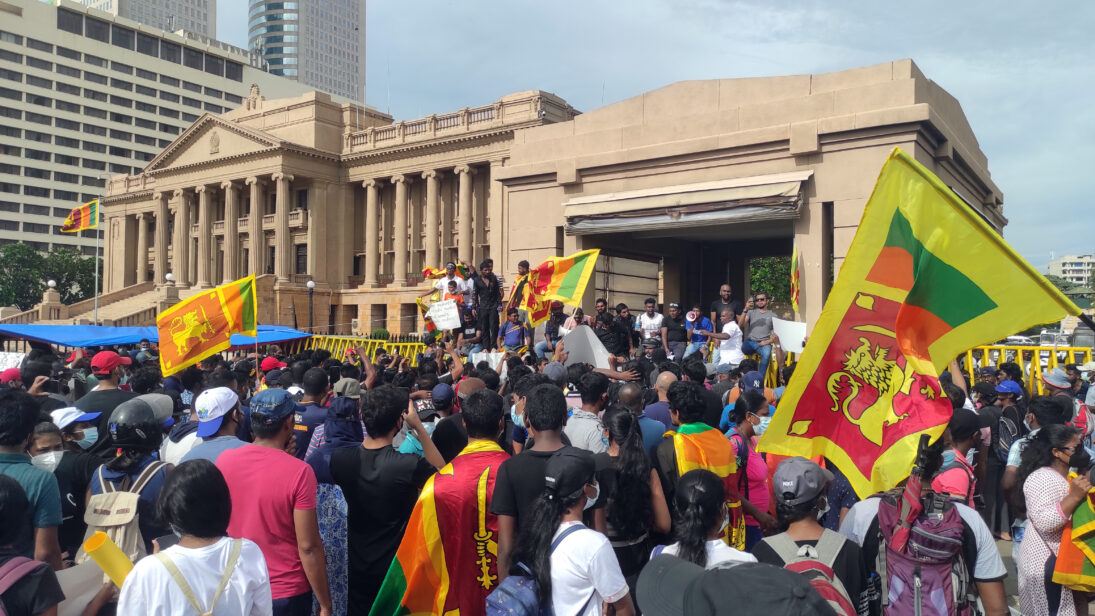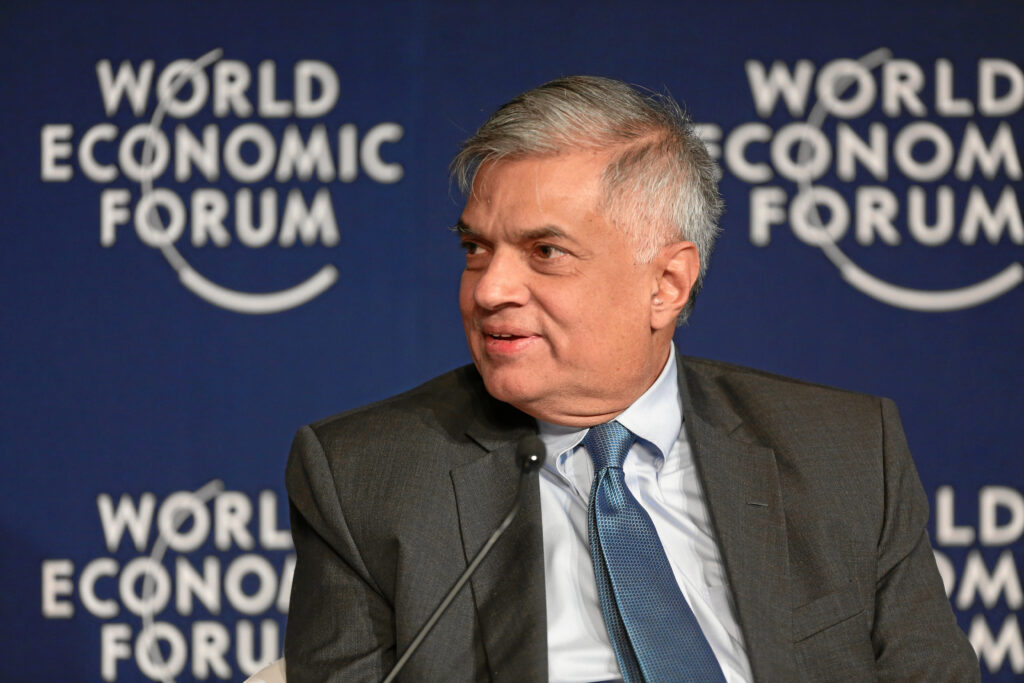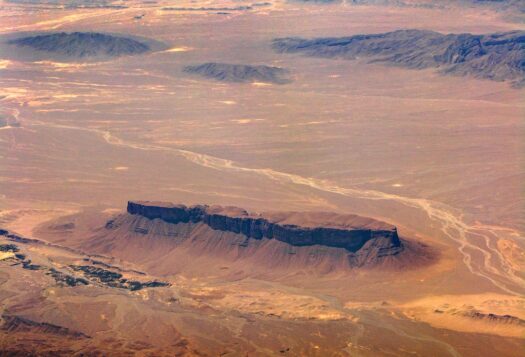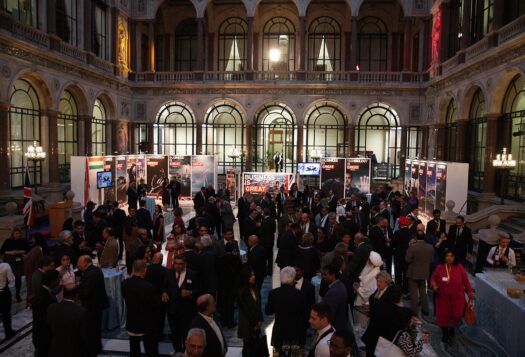
On July 15, Asanga Abeyagoonasekera spoke with South Asian Voices Deputy Editor Isha Gupta on new developments in Sri Lanka’s economic and political crises, including how the protests will factor into Sri Lanka’s political future, the role of the military in supporting the new government’s policies, the IMF’s involvement, and how international economic assistance affects Sri Lanka’s geopolitical relationships. This interview also includes an addendum after the Sri Lankan parliament elected Ranil Wickremesinghe as President on July 20th. Mr. Abeyagoonasekera is an international security and geopolitics analyst and strategic advisor from Sri Lanka. He is a Senior Fellow at the Millennium Project Washington DC, a Fellow at (NESA) National Defence University (US), and a Fellow at APCSS (Hawaii). He recently published “Conundrum of an Island,” on recent developments in the Indo-Pacific and the nature of China’s presence in Sri Lanka.
As of this morning, Gotabaya Rajapaksa has resigned as President of Sri Lanka and fled the country, leaving Ranil Wickremesinghe in charge. Elections will take place on July 20th with four candidates running. What is your immediate reaction to the current political situation in Sri Lanka?
Sri Lanka needs to find an acting President, as well as the new Prime Minister who will be elected after the President is elected on the 20th. That’s also when the Parliament gets together again. At that moment, the speaker will be calling for names for the new President, but then they will have to find an interim President, who will then appoint the next Prime Minister.
There’s currently a huge trust deficit between the general public, the protestors, and policymakers. I think the biggest challenge is to bridge that gap. The protestors want new people to govern. There is a serious breach in the social contract after Gotabaya Rajapaksa – and his brother, Mahinda Rajapaksa – came to power in 2019, eventually with a two-thirds supermajority. That mandate is gone.
I expect the interim measures will be in place not longer than six months because of the current fragility and dysfunctionality in government, and the demands of the protestors. Some of their demands involve a change in the political culture and structural adjustments to the existing political system. You are looking at constitutional changes and even the appointment of certain institutional heads. They want full transparency and accountability; they want to end corruption and get their stolen money back. These are the slogans I hear from the protests.
To have all that, you need elections in Sri Lanka to re-democratize the existing crisis. Without a stable political model, you cannot have economic improvement. As Nandalal Weerasinghe – the current Central Bank Governor of Sri Lanka – told the BBC on July 14, Sri Lanka only has money for two more fuel shipments this month and does not have any foreign reserves after that. Sri Lanka has only enough funds to survive this month, which is a serious statement. The governor also pointed out that, without political stability, the country may completely shut down.
Right now, Sri Lanka requires foreign assistance from the IMF and other international partners. Economic stability cannot be achieved without political stability.
Do you think the protests/aragalaya movement has the potential to generate genuine political change in Sri Lanka? What will be their role in a post-Rajapaksa Sri Lanka?
Structural reforms are important, but if they try to do it in a haphazard, quick manner, you will get into more challenges. Gotabaya Rajapaksa was a president who came to power and made serious structural adjustments to the 19th amendment by introducing the 20th amendment, which brought powers from the legislature to the executive within months after taking office. There was no public consultation with civil society groups or any others. He wanted to strengthen the executive branch and get rid of checks and balances and independent institutions that functioned under him.
Right now, Sri Lanka requires foreign assistance from the IMF and other international partners. Economic stability cannot be achieved without political stability.
That structural adjustment to the constitution had multiple consequences: it impacted how the Sri Lankan government functioned, the ministries, the independent institutions, and how human rights concerns were addressed. It has altered the entire democratic fabric of Sri Lanka. In the post-Rajapaksa era, protestors want a revision – they want to back to the 19th amendment by enacting the 21st amendment. Structural adjustments are important to make sure those in power aren’t solely satisfying their own political agendas and abusing presidential powers. The presidential system in Sri Lanka received its current powers with the new constitution of Sri Lanka in 1978 – close to the French political model. I would like to see another political body, like a senate, to curtail certain executive powers of the president as a potential solution.
But more than that, I think what is required is wider consultation with civil society groups, as well as legal experts. Future constitutional amendments have to be done with broader consultation, which has been lacking previously. This started when Mahinda Rajapaksa was president and amended the constitution to increase his term limits. However, we should not implement amendments quickly in a knee-jerk reaction. The government should also consult with minority Tamil and Muslim political parties and address their concerns, such as the devolution of power.
The message I’ve received from protestors over the last three months is that they want to see equality between different ethnicities and religions, which is very important. They also want more economic equality, which is why the protests have targeted political elites with large corruption scandals, who they blame for destroying the economy.
The protests have already achieved a significant victory and will likely achieve changes to the system. This victory of chasing the president, an executive who had proved its power in Parliament, somebody who was amended the institution, who had brought the military to the forefront—but the only thing the military could do was give safe passage to him, nothing else. The crowd was unarmed, and they walked into the president’s residence, his office, it’s a huge achievement. Never in the Sri Lankan political history have you see something like that.
What do you think the role of the military is right now? How might they act in terms of supporting the acting president’s agenda or might there be defections?
The role for the military is very significant, I would say a crucial moment for the military. Once the protesters entered the buildings the military has to stand with and deal with them. Incidents like a mentioned earlier, such as reports of stealing guns, can create a stronger military footing. They would be able to say, “Look, these are not protesters, these are rioters.” Social media could also blow out of proportion and then you are looking at a Myanmar model coming in.
Sri Lanka can create their own model of civil-military relations. Under Gotabaya Rajapaksa, 27 military members were invited into the administration. The new leader in Sri Lanka will need to remove them, because the military never wanted those positions. The Rajapaksa administration even appointed members of the military to lead archeological excavations of Buddhist sites in the Tamil-majority North and East – I bring archeology up as an example here because these sites are important for historical memory and part of inward/outward facing nationalist policy decisions. It all falls into that. Incorporating the military into civilian posts in administration and government exacerbated the previous government’s nationalist policy agenda, especially after their history of displacing Tamils and Muslims in the North and East, exacerbates ethnic tensions.
Sri Lanka’s new leader coming in will have to reset this and create a civil-military balance in the country, which is the most important thing right now. If the new leader uses military force to crack down on the protest you are inviting the military model to take over, a dangerous path.
The country requires reconciliation. Since 2009, under Mahinda Rajapaksa, reconciliation has been on the agenda but there’s no tangible results. We have a diaspora that is not satisfied at all and completely disconnected because of the political culture and the promise they have made have basically been lying to the people.
How will the heightened political instability affect the possibility of Sri Lanka receiving a bailout from the IMF?
According to Shanta Devarajan, there is no connection between political instability and the IMF going ahead with the bailout, which I’m happy to see. But nonetheless, you need a president, the prime minister and the finance minister. Now we don’t have any of them, just an acting president. After the elections on the 20th all of this will have to be quickly established because institutions need to function, and the IMF will need to work with these three positions. The staff level agreement is the most important, as well as the debt restructuring, which is a program that has to be given in August. So, all of that will need to be in place. However, there is the risk that the process could continue to be delayed by political infighting or lack of support for the new government, which could start up protests again.

As our closest neighbor, India has funded the largest of all currency swaps at some 3.5 billion. But there are other countries who have raised concerns, like Japan, because Sri Lanka doesn’t have a functioning government in place. Of course, there will be concerns from donors when there is no prime minister or finance minister in place. Sri Lanka will need some sort of political stability to attract donors and to address the conditionalities that will inevitability be part of a bailout. There will be tax reforms, debt restructuring, and other measures that will likely be recommended by the IMF. For the negotiations with the IMF, it needs to be clear who the political leaders are and who is negotiating, and without that, donors will have a serious issue.
International donors can also assist Sri Lankan protestors in their demands for reduced corruption and increased accountability. The British Parliamentarian, Ed Davey, for instance mentioned that Sri Lanka requires two packages. One is the economic package. One is the political package. The economic packages for the financial assistance, and the IMF and all that. And the political package is for stabilization.
I haven’t heard this from many other international politicians. He said that we need to help Sri Lanka on accountability and help the people of Sri Lanka. Even if it goes to an extent of getting an international arrest warrant for autocrats fleeing the country, we [the international community] need to assist. That’s an important gesture coming from an outside politician. There can be other assistance on accountability, India has a huge democracy fund which they give to the United Nations and the world’s largest democratic elections. Having fair elections is a good thing for democracy and can bring institutions back to functioning. India can assist on this, and so can the United States and the EU, especially on technical assistance. The country has multi-sector engagement from international actors, but they need ministries to function.
What has the reaction to Sri Lanka’s current situation from regional actors (India and China) been so far, and how do you think they will continue to act on Sri Lanka?
Whoever the next foreign minister is will have a huge challenge. One challenge is to recalibrate Sri Lanka’s foreign policy to be more balanced. That’s really important. Gotabaya Rajapaksa did not have a balanced foreign policy. As I’ve mentioned previously, he had a clear bandwagon foreign policy with China.
The Chinese loans given to Sri Lanka – especially for projects that generate no revenue – and the strategic direction those projects were aimed at should continue to generate concern for Sri Lanka’s foreign policy going forward. Additionally, Sri Lanka requires assistance to carry out its human rights agenda. China taking a position that allows the Sri Lankan government to avoid implementing Geneva Human Rights recommendations, and the Sri Lankan government reciprocating with its denial of human rights violations in Xinjiang, is concerning. Whoever comes into power has to immediately rebalance Sri Lanka’s foreign policy. India and China are both large donors to Sri Lanka and help fund its infrastructure; both are important.
We have some concerns with debt restructuring with China, because we’ve borrowed at high interest rates and our agreements with them aren’t transparent. I think the new government – as the protestors have demanded – should make all their agreements with China available to the general public. The public has not seen the fine print of the 99-year lease of Hambantota Port or the special economic zone with the Colombo Port City development. China needs to develop its toolkit on BRI that increases accountability and transparency for its projects and their impacts on the countries they assist. Indian agreements, such as the Trincomalee oil tank farm and the Eastern Container Terminal, also need transparency.
IMF assistance isn’t even coming within three months, so the government needs a plan in place immediately to assist them and ease the political pressure of the protests.
However, India’s sensitives also need heightened consideration because these Chinese projects are within India’s immediate periphery. There are two policies of India which could continue to help Sri Lanka during the crisis: Modi’s Neighborhood First Policy and the SAGAR (Security and Growth for All in the Region) Vision. Sri Lanka hasn’t benefited much from these policies so far because it has previously not calculated its foreign policy towards India carefully. The previous government also refused U.S. development assistance by rejecting the Millennium Challenge Cooperation fund as a national security threat and canceled the Japanese-funded Light Rail Project (LRT). Sri Lanka is a geostrategic hotspot in the Indian Ocean and rebalancing Sri Lanka’s foreign policy with all these countries to get more economic assistance is necessary.
On July 20: What are the implications of Ranil Wickremesinghe’s election to the presidency and what will he focus on first?
Ranil Wickremesinghe is the second executive President appointed by parliament after D.B Wijetunga, who became president after the death of President Premadasa. Since such appointments does not reflect the people’s direct vote, there will be political challenges from day one, especially with the economic crisis. Wickremesinghe will have two immediate challenges to face. First, he must bridge the trust deficit between the protestors and himself and implement some of the protestors’ demands in the coming months. Second, he must help Sri Lanka reach a staff level agreement and debt restructuring plan to be submitted by August to IMF and to activate the international donor conference which he was proposing for Sri Lanka to stabilize the economy. Sri Lanka is under debt distress and unable to repay the large debt, and hope that China will be willing to work with Sri Lanka to restructure the debt in the coming months. Further foot-dragging by China on debt restructuring will deteriorate the economic condition of the country. It’s important for other nations to add some pressure on China to be more cooperative installed efforts to restructure the debts in Sri Lanka.
Finally, the most vulnerable people in Sri Lanka need to be looked after the most in this crisis. IMF assistance isn’t even coming within three months, so the government needs a plan in place immediately to assist them and ease the political pressure of the protests.
Editor’s Note: This article is part of two-part Q&A series with Asanga Abeyagoonasekera examining the ongoing Sri Lankan economic crisis. Read part one here.
***
Image 1: Anton via Wikimedia Commons
Image 2: World Economic Forum via Flickr


